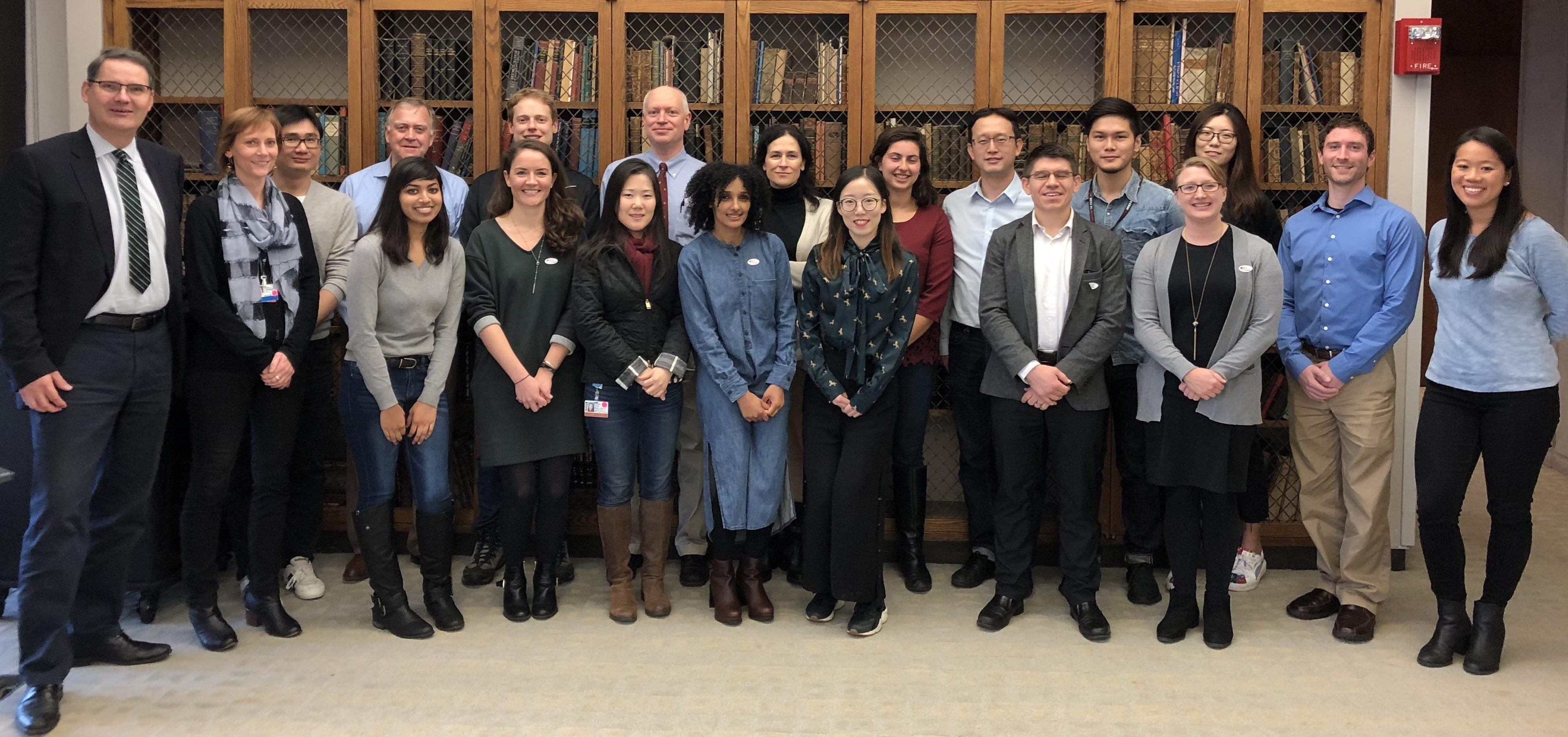
What is Pharmacoepidemiology?
Pharmacoepidemiology studies the determinants of both intended and unintended effects of drugs, vaccines, biologics, medical procedures, and medical devices. Important secondary themes include patterns of utilization and adherence, safety signal detection, comparative effectiveness, and cost-benefit and benefit-risk analyses. Training in the Program in Pharmacoepidemiology focuses on the application of pharmacoepidemiologic design and analysis methods and causal thinking to address important clinical questions in real-world data. Courses cover such areas as pharmacoepidemiology, database analytics, propensity scores, comparative effectiveness, clinical trials, decision sciences, and health services research. Students have the opportunity to participate in ongoing research projects with associated faculty. Students are also encouraged to engage with the broader field of pharmacoepidemiology outside the school and to undertake internships in regulatory agencies or pharmaceutical and biotechnology companies.
Mission Statement
The mission of the Program in Pharmacoepidemiology is to: (1) advance research in the determinants of both intended and unintended effects of drugs, vaccines, biologics, medical procedures, and medical devices; (2) train the next generation of leaders who will continue to advance the field; and (3) enhance research and academic capacity in pharmacoepidemiology.
About The Program
The Program in Pharmacoepidemiology at the Harvard T.H. Chan School of Public Health was established to promote excellence in pharmacoepidemiology and is the world’s oldest and most comprehensive academic program in the field. Since the Program’s founding in 1986, pharmacoepidemiology has evolved to become a fundamental tool to safeguard and promote public health. The Program has made important contributions to shaping the field. Under the direction of Alexander Walker, Arnold Chan, Sonia Hernández-Díaz and, more recently, Joshua Gagne, the Program and its faculty have published extensively in the scientific literature and they provide rigorous training for a select group of students each year. The program offers a PhD in Population Health Sciences, an 80-credit SM, and a 42.5-credit SM. Graduates of the program occupy key positions in academic programs, regulatory agencies, pharmaceutical companies, health care institutions, and other research organizations.
A key strength of the Program is its close collaborations with the Division of Pharmacoepidemiology and Pharmacoeconomics at Brigham and Women’s Hospital (BWH) and Harvard Medical School; Department of Population Medicine at Harvard Medical School and the Harvard Pilgrim Health Care Institute. These sites are international centers of excellence in pharmacoepidemiology and related disciplines and offer a wide range of individualized practical research training for students, fellows, and junior investigators. Interdigitating didactic coursework at Harvard Chan with experiential training at these and other sites provides an integrated and immersive experience for students who benefit from in-depth and multidisciplinary scientific exchange.



